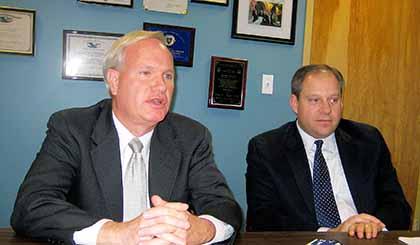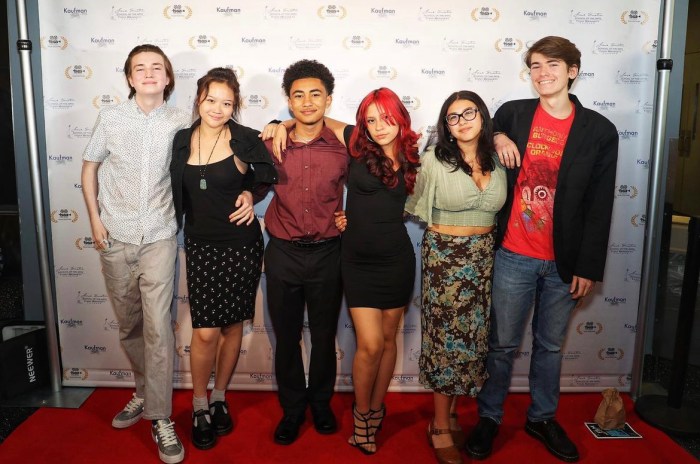By Anna Gustafson
While there were fewer problems with the new voting system in last week’s general election than in the primary, complaints about the ballots and machines were still widespread and the city and state need to address the small font size and privacy issues, state Assemblyman Rory Lancman (D-Fresh Meadows) and state Sen.-elect Tony Avella said this week.
City Council Speaker Christine Quinn (D-Manhattan) also announced the results of the Council’s Election Day survey Tuesday, in which nearly 1,200 city residents from 300 different polling sites across the city participated and a third reported problems with the ballot design and small font size. Many elderly Queens residents interviewed by TimesLedger Newspapers last week said they had serious difficulty reading the ballot.
“New York’s new voting system raises as many questions as it answers, and we need to smooth out the kinks in the system now before we end up with our own Florida 2000 debacle in some future election,” Lancman said at a Tuesday press conference he held with Avella. “This year’s elections showed serious flaws in privacy, access and preparedness that cannot be left unaddressed.”
The new system, which was mandated by the federal Help America Vote Act, makes voters select their candidates by filling out ovals — something reminiscent of multiple choice tests — on a paper ballot that is fed into a scanner. The scanner then records the voter’s choice and the physical evidence of the ballot will remain — one of the main stipulations of the federal act, which was passed in part as a response to the confusion over the Florida ballots in the 2000 presidential election.
After voters and many city lawmakers, including Mayor Michael Bloomberg, railed against operations during Primary Day, when voting machines broke down or were delivered hours late to their polling site, the city Board of Elections said it took extra precautions to ensure a smooth general election.
“Generally speaking, the Election Day operations went well,” city BOE spokeswoman Valerie Vazquez-Rivera wrote in an e-mail. “On Nov. 2, the board focused on ensuring all voters were able to privately and independently vote and quickly responded to and resolved issues. The board staff closely monitored, logged and addressed problems as they were reported from across the city via our call center and Twitter, including dispatching technicians and, when necessary, back up scanners and staff to poll sites.”
Still, Lancman and Avella said there are major flaws in the new system that need to be addressed, including voter privacy — voters no longer have a curtain behind which they can cast their vote and instead have to carry their ballot from a desk to the scanner, which could allow someone to see their ballots. Lancman and Avella noted in the primary election that officials often did not provide a “privacy sleeve,” or a folder, in which to carry the ballot, though they more frequently did during last week’s election.
“We need to make sure inspectors are better trained,” Avella said.
Lancman and Avella agreed with the Council’s findings on the ballot.
“The results of the Council’s survey show that ballot design and font size is a real problem for many of New Yorkers,” Quinn said. “We look forward to working with our local good government partners on the different ways we can improve the layout of the ballot.”
Councilman Dan Halloran (R-Whitestone) and Lancman said they thought the design of the ballot likely deterred residents, particularly older people, from voting all the way down the ballot. Both said they believed many people likely voted for governor but then did not vote for many of the other offices because it was too difficult to navigate the ballot or read the font.
“The voting system sucked,” Halloran said. “I know of at lease a dozen older people, personally including my two in-laws, who left the polling places because they said they were waiting on line” and did not want to stay any longer.
“Those seniors are Frank’s voters,” Halloran said, referring to state Sen. Frank Padavan (R-Bellerose), who lost the race.
Lancman and Avella said they will push legislation in Albany to reform the voting process, including allowing college students to be election inspectors even if they do not live in Queens, which is currently mandated, in order to get younger people who are more adept at technology working in elections.
Avella noted that he would like to see the state Board of Elections issue a voter guide, similar to what the city puts out, in order to better inform residents about candidates.
Reach reporter Anna Gustafson by e-mail at agustafson@cnglocal.com or by phone at 718-260-4574.





























